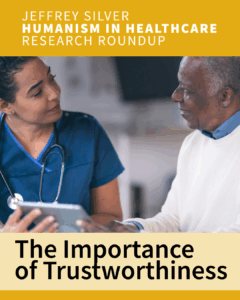 by Katie Grogan and Erin Zerbo
by Katie Grogan and Erin Zerbo
U.S. medical education on the topic of addiction is highly inconsistent, with limited data to support the efficacy of one educational approach over another. This deficit, coupled with the chronic and remitting nature of substance use disorders, can lead medical students and trainees to develop pessimistic perceptions and negative attitudes towards the disease.
With a shared interest in enhancing education about addiction in the medical community, the two of us—a medical humanist and an addiction psychiatrist—joined forces to create “Literature and Addiction,” an interdisciplinary seminar in the Master Scholars Program in Humanistic Medicine at NYU School of Medicine. We utilize literature, both fiction and non-fiction, to investigate how this disease manifests subjectively for someone experiencing an addictive disorder. We also spend time discussing the neurobiology of addiction, and throughout the seminar we consider both biological and humanistic perspectives as we discuss individual freedom and willpower, compulsive behavior, and craving.
Can reading literature really destigmatize substance use disorders? We think so. Stories bring to life certain addiction concepts that, presented through other modalities, may remain abstract or disconnected from human experience—e.g., comorbidity of substance use and psychiatric disorders, the haziness and disorganization of the addicted state, and recovery and the 12-step model. Many of the texts we use invite participants to consider controversial issues like free will and other constructs that powerfully shape the way we think about people with an addictive disorder. There is certainly no shortage of texts from which to choose. Sample readings include excerpts from:
- Eugene O’Neill’s Long Day’s Journey into Night
- Dorothy Parker’s “Big Blonde”
- Caroline Knapp’s Drinking: A Love Story
- Thomas De Quincey’s Confessions of an English Opium-Eater
- William Carlos Williams’ “Old Doc Rivers” and
- Nic Sheff’s Tweak.
We also utilize writing exercises to give participants an opportunity to freely reflect on various scenarios related to substance use (such as seeing a homeless person with an alcohol use disorder, observing a peer abusing drugs, and counseling a patient with a substance use disorder). Our hope is that these reflections will enable us to track emergent themes in participants’ attitudes towards substance users.
It’s been our experience, with two semesters of the seminar under our belts, that literature is a powerful tool for querying social stereotypes and personal biases about addiction. We were hesitant to speculate about how our readings and discussions might impact personal perspectives on substance use disorders or empathy towards those with addiction—these things can be hard to measure. And there is a significant sample bias, given that the seminar may attract those individuals who already have a humanistic understanding of addiction. But student feedback suggests that studying addiction through literature promotes a capacity and willingness to reflect upon, and ultimately alter, one’s attitude. Some comments convey a real sense of transformation:
“[The seminar] humanized my perspective on addiction and the addict . . . [The] literature was so vivid and raw . . . allowing me to view addiction in a very different manner.”
“I’m more empathetic now. I’m more educated. I feel like I have the language to speak to someone about [addiction] and maybe understand their story a little better.”
“I got to see another side—how addiction happens and what’s really underlying it, and that there is hope.”
Perhaps the most important aspect of teaching about addiction through literature is that it provides a safe space to engage vicariously with a frightening and stigmatized condition in a low-risk context. The scenarios encountered in our seminar are fictional or too distant to pose immediate danger—a point confirmed by a groundbreaking 2013 study at The New School for Social Research that found even brief exposure to works of literary fiction can improve empathy because “they present opportunities to consider the experiences of others without facing the potentially threatening consequences of that engagement.”
Because we pair relevant neurobiological insights with narratives of addiction, we can give participants a more complete picture of the inner life of the addict. Armed with this heightened understanding, students are in a better position to reject prevailing stereotypes and act with compassion towards those with substance use disorders, both in the medical setting and their everyday lives.
 Katie Grogan, DMH, MA is Associate Director of the Master Scholars Program in Humanistic Medicine at NYU School of Medicine & Adjunct Instructor in the Division of Medical Humanities within the Department of Medicine.
Katie Grogan, DMH, MA is Associate Director of the Master Scholars Program in Humanistic Medicine at NYU School of Medicine & Adjunct Instructor in the Division of Medical Humanities within the Department of Medicine.
 Erin Zerbo, MD is Assistant Professor in the Department of Psychiatry of Rutgers New Jersey Medical School & Attending Psychiatrist in the Department of Psychiatry of University Hospital. She is formerly Associate Program Director of the Addiction Psychiatry Fellowship at NYU School of Medicine & Associate Director of Consultation-Liaison Psychiatry at Bellevue Hospital Center.
Erin Zerbo, MD is Assistant Professor in the Department of Psychiatry of Rutgers New Jersey Medical School & Attending Psychiatrist in the Department of Psychiatry of University Hospital. She is formerly Associate Program Director of the Addiction Psychiatry Fellowship at NYU School of Medicine & Associate Director of Consultation-Liaison Psychiatry at Bellevue Hospital Center.


